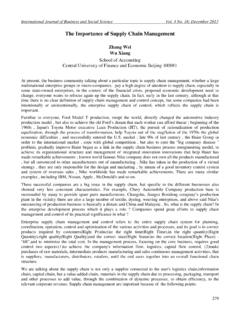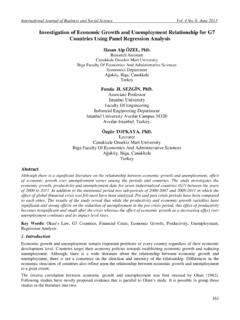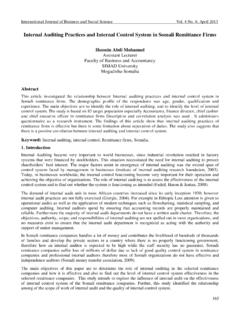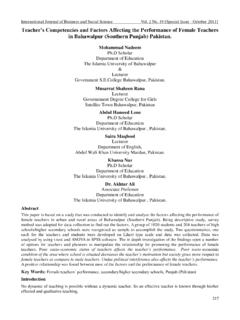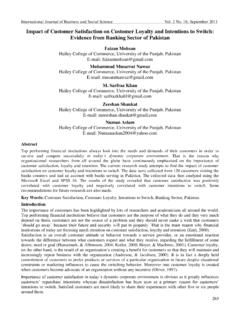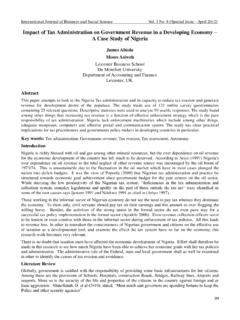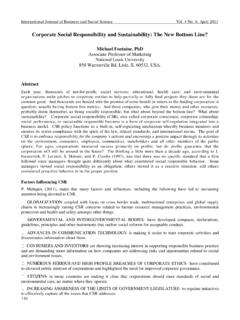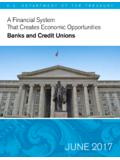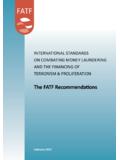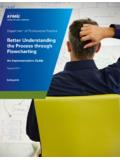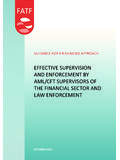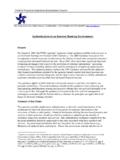Transcription of Forensic Accounting and Financial Fraud in Nigeria: An ...
1 International Journal of Business and Social Science Vol. 4 No. 7; July 2013 281 Forensic Accounting and Financial Fraud in Nigeria: An Empirical approach Kennedy Prince Modugu Department of Accounting Faculty of Management Sciences University of Benin, Nigeria. Dr. J. O. Anyaduba Department of Accounting Faculty of Management Sciences University of Benin, Nigeria. Abstract With an upsurge in Financial Accounting Fraud in the global economy, Forensic Accounting has become an emerging topic of great importance for academic, research and industries. The objective of the study is to examine Forensic Accounting and Financial Fraud in Nigeria. Specifically, the study examined if there is significant agreement amongst stakeholders on the effectiveness of Forensic Accounting in Financial Fraud control, Financial reporting and internal control quality. The survey design was used in the study with a sample size of 143 consisting of accountants, management staffs, practicing auditors and shareholders.
2 The simple random technique was utilized in selecting the sample size, while the binomial test was employed in the data analysis. The findings of the study indicate that there is significant agreement amongst stakeholders on the effectiveness of Forensic Accounting in Fraud control, Financial reporting and internal control quality. In line with the above findings, we recommend that the Institute of Chartered Accountants of Nigeria, Association of National Accountants of Nigeria and the National Universities Commission should encourage formalization and specialization in the field Forensic Accounting . In addition, the government should stimulate interest in Forensic Accounting for monitoring and investigation of suspected corruption cases. Key Words: Forensic Accounting , Financial Fraud , stakeholders, chartered accountants Introduction Forensic Accounting is perceived to have evolved in response to certain emerging Fraud related cases.
3 The scandals that recently rocked the corporate world with classical examples being the often cited Enron and WorldCom cases have also brought the field of Forensic Accounting to the forefront. Forensic Accounting is seen as encapsulating all other investigation related areas in uncovering Financial Fraud . The increasing sophistication of Financial Fraud requires that Forensic Accounting be added to the tools necessary to bring about the successful investigation and prosecution of those individuals involved in criminal activities. Forensic Accounting is the tripartite practice of utilizing Accounting , auditing and investigative skills to assist in legal matters. It is a specialized field of Accounting that describes engagements that result from actual or anticipated disputes or litigation. Forensic Accounting can, therefore, be seen as an aspect of Accounting that is suitable for legal review and offering the highest level of assurance (Apostolou, Hassell, and Webber, 2000).
4 Ojaide (2000) notes that there is an alarming increase in the number of Fraud and fraudulent activities in Nigeria, requiring the visibility of Forensic Accounting services. According to the Centre for Forensic Studies (2010) report, the increasing need for Forensic and investigative Accounting in the banking sector results from the complexities of modern day banking with large volume of complex data. This makes it difficult to monitor transactions by applying manual audit processes. This in turn makes the control utility of auditing ineffective. Virtually all the weaknesses and challenges identified in the banking industry in Nigeria's post-consolidation, and criminal investigations and prosecutions arising from them, are issues for Forensic Accounting . The general expectation is that Forensic Accounting may offer some respite to the seeming vulnerability of conventional Accounting and audit systems to Financial Fraud .
5 Center for Promoting Ideas, USA 282 Consequently, the incorporation of modern Forensic auditing techniques in audit in Nigeria is seen as timely in order to prepare the Accounting profession to deal effectively with the problem of unearthing ingenious Fraud schemes arising from audit failure to detect frauds in Nigeria. Centre for Forensic Studies (2010) report in Nigeria states that if well applied, Forensic Accounting could be used to reverse the leakages that cause corporate failures. This can be attributed to the fact that proactive Forensic Accounting practice seeks out errors, operational vagaries and deviant transactions before they crystallize into Fraud . The focus of this study therefore is to examine the role and prospects of Forensic Accounting in curbing Financial crimes in Nigeria with particular emphasis on the banking sector. Statement of the Problem Ojaide (2000) submits that there is an alarming increase in the number of Fraud and fraudulent activities in Nigeria emphasizing the visibility of Forensic Accounting services.
6 Okoye and Akamobi (2009) Owojori and Asaolu (2009), Izedomin and Mgbame ( 2011), Kasum (2009) have all acknowledge in their separate works, the increasing incidence of Fraud and fraudulent activities in Nigeria and these studies have argued that in Nigeria, Financial Fraud is gradually becoming a normal way of life. As Kasum (2009) notes, the perpetuation of Financial irregularities are becoming the specialty of both private and public sector in Nigeria as individual perpetrates Fraud and corrupt practice according to the capacity of their office. Consequently, there is a general expectation that Forensic Accounting may be able to stem the tide of Financial malfeasance witnessed in most sectors of the Nigerian economy. However, there has not been adequate emphasis, especially survey evidence on how Forensic Accounting can help curb Financial crimes beyond the several anecdotal views that abound. Consequently, the study fills this gap by addressing the following research questions; 1.
7 Is there significant agreement on the effectiveness of Forensic Accounting in Financial Fraud control? 2. Is there significant agreement on the effectiveness of Forensic Accounting in improving Financial reporting quality? 3. Is Forensic Accounting effective in improving internal controls? Literature Review Concept of Forensic Accounting Forensic Accounting is the integration of Accounting , auditing and investigative skills (Zysman, 2004). Dhar and Sarkar (2010) define Forensic Accounting as the application of Accounting concepts and techniques to legal problems. It demands reporting, where accountability of the Fraud is established and the report is considered as evidence in the court of law or in administrative proceedings. Degboro and Olofinsola (2007) note that Forensic investigation is about the determination and establishment of fact in support of legal case. That is, to use Forensic techniques to detect and investigate a crime is to expose all its attending features and identify the culprits.
8 In the view of Howard and Sheetz (2006), Forensic Accounting is the process of interpreting, summarizing and presenting complex Financial issues clearly, succinctly and factually often in a court of law as an expert. It is concerned with the use of Accounting discipline to help determine issues of facts in business litigation (Okunbor and Obaretin, 2010). Forensic Accounting is a discipline that has its own models and methodologies of investigative procedures that search for assurance, attestation and advisory perspective to produce legal evidence. It is concerned with the evidentiary nature of Accounting data, and as a practical field concerned with Accounting Fraud and Forensic auditing; compliance, due diligence and risk assessment; detection of Financial misrepresentation and Financial statement Fraud (Skousen and Wright, 2008); tax evasion; bankruptcy and valuation studies; violation of Accounting regulation (Dhar and Sarkar, 2010).
9 Curtis (2008) argues that Fraud can be subjected to Forensic Accounting , since Fraud encompasses the acquisition of property or economic advantage by means of deception, through either a misrepresentation or concealment. Bhasin (2007) notes that the objectives of Forensic Accounting include: assessment of damages caused by an auditor s negligence, fact finding to see whether an embezzlement has taken place, in what amount, and whether criminal proceedings are to be initiated; collection of evidence in a criminal proceedings; and computation of asset values in a divorce proceedings. International Journal of Business and Social Science Vol. 4 No. 7; July 2013 283 He argues that the primary orientation of Forensic Accounting is explanatory analysis (cause and effect) of phenomenon- including discovery of deception (if any), and its effects-introduced into the Accounting domain.
10 According to Bhasin (2007), Forensic accountants are trained to look beyond the numbers and deal with the business realities of situations. Analysis, interpretation, summarization and the presentation of complex Financial business related issues are prominent features of the profession. He further reported that the activities of Forensic accountants involve: investigating and analyzing Financial evidence; developing computerized applications to assists in the analysis and presentation of Financial evidence; communicating their findings in the form of reports, exhibits and collections of documents; and assisting in legal proceedings, including testifying in courts as an expert witness and preparing visual aids to support trial evidence. Financial Fraud Financial Fraud has been variously described in literature. No one description suffices. Wikipedia dictionary describes Fraud as crimes against property, involving the unlawful conversion of property belonging to another to one s own.
